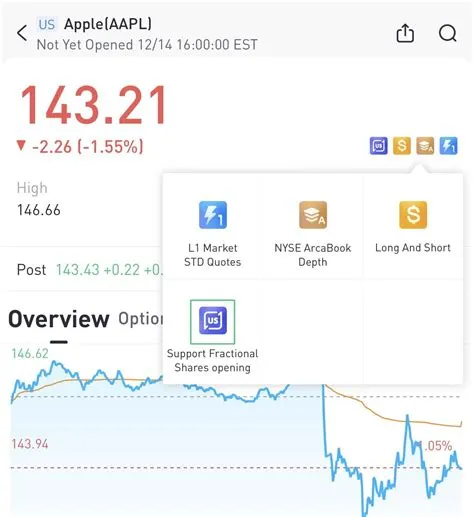Hey there! Ever feel like your mental health needs a little… well, a workout? Just like we hit the gym for physical fitness, our minds deserve some dedicated attention too. And that’s where mental fitness apps come in. They’re like personal trainers for your brain, offering a range of tools and techniques to help you navigate the ups and downs of life. But with so many apps out there, how do you choose the right one for you? That’s what we’re diving into today.
Think of your mental wellness like a garden. You wouldn’t expect a lush, thriving garden to grow without tending to it, right? You need to weed out negative thoughts, plant seeds of positivity, and nurture your inner landscape. Mental fitness apps are your gardening tools, providing the resources you need to cultivate a thriving mental garden.
These apps aren’t just about fixing problems; they’re about proactive self-care. They’re about building resilience, enhancing your emotional intelligence, and developing coping mechanisms to deal with stress, anxiety, and even depression. They offer a personalized approach, adapting to your individual needs and goals. Some focus on mindfulness and meditation, others on cognitive trends">behavioral therapy (CBT) techniques, and still others provide a holistic approach combining various methods.
What Can Mental Fitness Apps Offer You?
Let’s explore some of the key features and benefits you can expect from these powerful tools. Many offer a range of features, but some common offerings include:
Guided Meditations: These are like mini-vacations for your mind. They guide you through relaxation techniques, helping you quiet the mental chatter and find a sense of calm. Imagine it as pressing the pause button on your racing thoughts.
Mindfulness Exercises: Mindfulness is all about being present in the moment, fully appreciating your surroundings and your internal experience without judgment. Apps often incorporate mindful breathing exercises, body scans, and other techniques to cultivate this awareness. It’s like sharpening your focus, allowing you to truly appreciate the beauty of the present.
CBT Techniques: Cognitive Behavioral Therapy (CBT) is a widely used therapy that helps you identify and change negative thought patterns and behaviors. Many apps incorporate CBT principles, offering tools to challenge negative self-talk and develop more positive and realistic thinking. Think of it as rewiring your brain for success.
Mood Tracking: Regularly tracking your mood can help you identify patterns and triggers that may be contributing to your mental state. This data can be incredibly insightful, allowing you to understand yourself better and make informed choices about your self-care. It’s like keeping a personal diary for your emotional well-being.
Sleep Improvement Tools: Sleep is crucial for mental and physical health. Many apps offer sleep stories, calming soundscapes, and guided meditations designed to improve sleep quality. A good night’s sleep is like hitting the reset button on your entire system.
Personalized Programs: Many apps personalize their programs based on your individual needs and goals. They adapt to your progress, ensuring you receive the right support at the right time. It’s like having a personal trainer who understands your unique fitness journey.
Journaling Prompts: Journaling can be a powerful tool for self-reflection and emotional processing. Apps often provide prompts to help you explore your thoughts and feelings. It’s like having a confidential conversation with yourself.
Community Features: Some apps offer community features, allowing you to connect with others who are also working on their mental wellness. This sense of shared experience can be incredibly supportive and motivating. It’s like joining a fitness club for your mind.
Choosing the Right App: A Personalized Approach
With so many mental fitness apps available, selecting the right one can feel overwhelming. Don’t worry, here’s a helpful guide:
1. Identify Your Needs: What are your primary goals? Are you struggling with anxiety, stress, sleep problems, or something else? Choosing an app that directly addresses your specific needs is crucial.
2. Read Reviews: Check out app store reviews to get a sense of other users’ experiences. Pay attention to both positive and negative feedback.
3. Consider Features: Think about the features that are most appealing to you. Do you prefer guided meditations, CBT techniques, mood tracking, or a combination?
4. Free vs. Paid: Many apps offer a free version with limited features. If you find a good fit, upgrading to a paid version often unlocks more content and functionality.
5. Trial and Error: Don’t be afraid to try a few different apps before settling on one that truly resonates with you. Finding the right app is a personal journey.
Beyond the Apps: A Holistic Approach
Remember, mental fitness apps are tools, not magic wands. They’re incredibly helpful but should be part of a broader approach to mental wellness. They work best when combined with other self-care practices like regular exercise, a healthy diet, strong social connections, and seeking professional help when needed. Think of them as a valuable addition to a larger, holistic approach.
The Bottom Line
Mental fitness apps are becoming increasingly popular and for good reason. They provide convenient, accessible, and often personalized support for improving your mental well-being. They offer a range of tools and techniques that can help you manage stress, cultivate mindfulness, improve sleep, and strengthen your overall resilience. They’re a powerful resource, but remember to integrate them into a comprehensive approach to self-care. So, why not give one a try and start your journey towards a healthier, happier you? Your mind will thank you for it.
FAQs:
1. Are mental fitness apps suitable for everyone? While many find them helpful, it’s essential to remember these apps are not a replacement for professional therapy. If you’re struggling with severe mental health challenges, seeking professional help is crucial. Apps can be a valuable supplement to therapy, but never a substitute.
2. Do I need to pay for a mental fitness app? Many apps offer free versions with limited features. Paid versions typically provide access to more content, personalized programs, and advanced features. Consider your budget and needs when choosing between free and paid options.
3. How long does it take to see results from using a mental fitness app? The timeline varies depending on the app, your consistency, and your individual needs. Some people notice positive changes quickly, while others may take longer. Consistency is key.
4. Can I use a mental fitness app alongside traditional therapy? Absolutely! Many therapists encourage their clients to use these apps as a supplemental tool to support their therapy sessions. It’s always a good idea to discuss this with your therapist.
5. What if I don’t like the app I choose? Most app stores have refund policies. If you’re unhappy with an app, explore others or seek alternative resources for mental wellness. Don’t be afraid to try different approaches until you find what works best for you.

